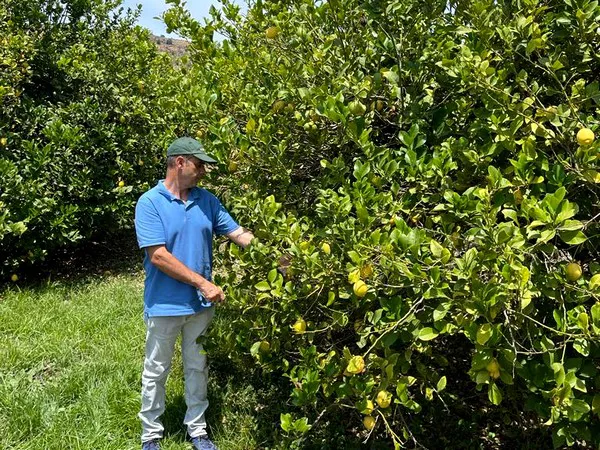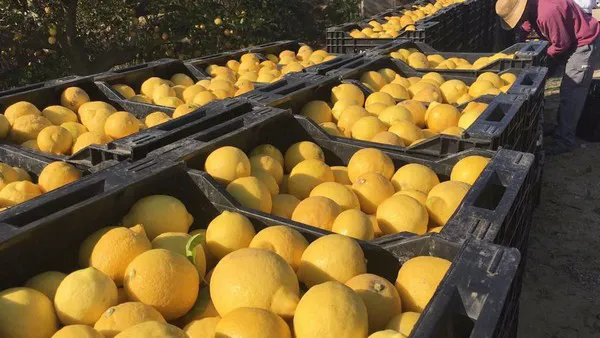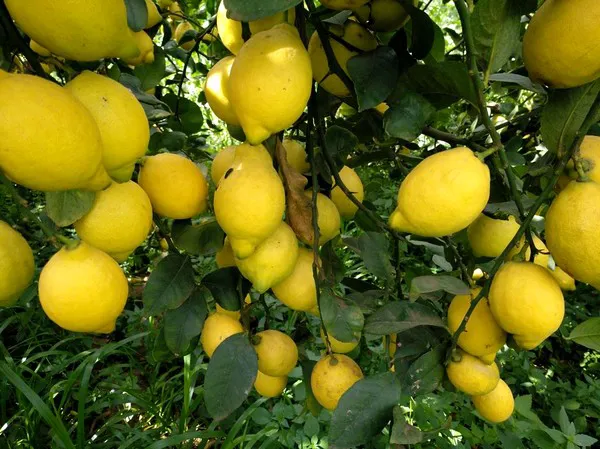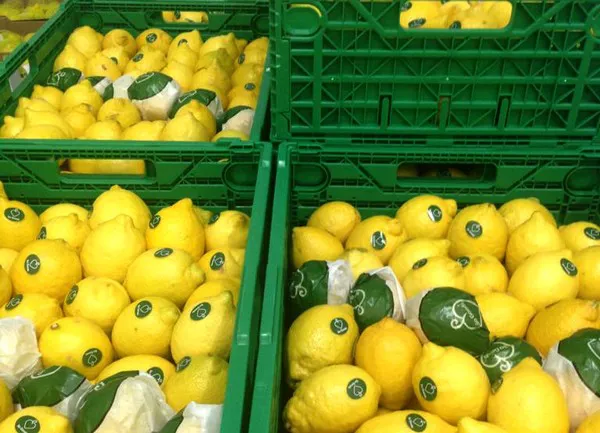Already close to 12,000 hectares are devoted to organic lemon cultivation in Spain, making the country the largest producer and global supplier of organic lemons. "In the lemon sector, we are very pleased to have achieved such a level of sustainability. We are number 1 in the world both in terms of carbon footprint and total environmental footprint", says Juan Antonio Martínez Rubio, of the company Toñifruit, specialized in organic production.

"This year, climate change, which we are trying to fight with this very sustainable production, has taken its toll, and we've had the driest spring in recent times. This has made things tough for everyone in the agricultural sector and in particular also for lemon producers. Fortunately, we've had 15 days with rainy weather; in fact, more than 100 l/m² have been recorded in some places, and the reservoirs are now a little fuller. This will also allow a lower expenditure in irrigation water."

The drought has been the cause of the drop in the production this season. The initial estimates have been adjusted based on updated data from Ailimpo. The volume marketed will inevitably fall. According to data from the interprofessional organization up to April 30, the volumes exported to Europe (including the United Kingdom) have been reduced by 7%, and those going to the domestic market have fallen by 6%. However, in the current context of lower production and overall fall in the consumption of fruits and vegetables, domestic consumption data still invite optimism, since in the last decade, lemons have been the only citrus fruit that has maintained its average per capita.
"Rather than a fruit, lemons have always been considered a condiment and, as such, they are less affected by changes in consumer habits. In general terms, there has been a drop in fruit and vegetable consumption in Europe due to inflation, the crisis and the war, but in the case of lemons, the drop has been lower than average and we are happy, all circumstances considered."

"We have the product, the sustainability and the market next door, to which we can provide our services within 24 hours"
With regard to consumption, now the summer period is starting and consumption traditionally increases. "We are facing the challenge of trying to increase the presence of organic lemons on the shelves," says Juan Antonio. "The carbon footprint of overseas lemons is immense, while there are local lemons in the EU which, in the case of Spain, even record a positive carbon footprint. We have the product, the sustainability and the market next door, to which we can provide our services all year round, delivering our lemons to any point within 24 hours. Moreover, we meet every demand from the EU in terms of environmental, social and labor standards."

"In this regard, Ailimpo has organized a very important promotional campaign for Spanish lemons which is now coming to an end, and the sector has requested that it be renewed to continue promoting the benefits of the lemons from Spain, focusing now on the organic. We cannot forget that the EU has introduced legislation dictating that 25% of food must be organic by 2030, so it should also help in the promotion to bring the percentage of organic food consumed to 25%."
In the particular case of lemons, "we firmly believe that the capacity for growth and consumption can continue to increase in the coming years. There are already supermarket chains that have Spanish organic lemons on their shelves even in summer. It is a bet for which we are very grateful, because Spain is ready to supply organic lemons all year round. That is something no other organic fruit sector achieves and should allow us to continue growing."
 For more information:
For more information:
Toñifruit
Parque empresarial Cabecicos Blancos
C/ Molino Grande, buzón 22
30892 Librilla. Murcia, Spain
Tel.: +34 968 071 056
info@tonifruit.com
https://tonifruit.com
